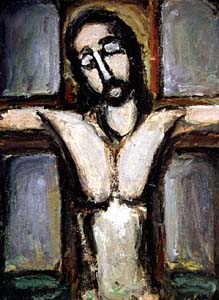Apr
11
2013
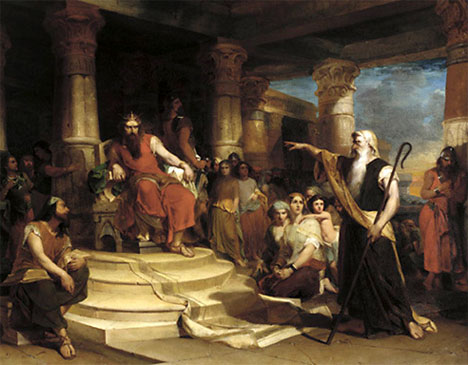 “…there is no sacrifice to Bathsheba…”
“…there is no sacrifice to Bathsheba…”
Jon Ericson asked this question on the Biblical Hermeneutics site:
To what extent is Psalm 51:4 poetic exaggeration?
The context of Psalm 51 is clear:
To the choirmaster. A psalm of David, when Nathan the prophet went to him, after he had gone in to Bathsheba.
These events are described in 2nd Samuel 11–12. In summary, David essentially murdered Uriah the Hittite in order to cover up an affair with Bathsheba, Uriah’s wife. So this verse causes me trouble:
Continue reading
Comments Off | tags: David, Hermeneutics, Psalms, Samuel | posted in Biblical Theology, Q&A
Apr
8
2013
 Part 1 | Part 2 | Part 3 | Part 4 | Part 5
Part 1 | Part 2 | Part 3 | Part 4 | Part 5
We have reached the fifth stage of the matrix in Paul’s letter to the Ephesians, which is the sixth cycle (as discussed in part 5, stage 3 — Ascension — is often split into two parts, altar and sacrifice).
So this fifth section is the “Deuteronomy” of the epistle. It is a New Covenant version of Moses giving his final words to the children of Israel before the conquest of the Land. Likewise, Paul himself, and all the other apostles (except perhaps for John, the final word) would be gone before the rulers of the Land (Revelation’s “kings of the earth”) would be wiped off the face of it forever.
As in all previous cycles, there are some real literary wonders here, which is especially satisfying to see when the passages themselves (unparsed) are so familiar. It’s like seeing old friends in a new way: the letter resurrected and alive and walking around.
Continue reading
Comments Off | tags: Covenant Theology, Daniel, Ephesians, Feasts, Literary Structure | posted in Bible Matrix, Biblical Theology
Apr
4
2013
A Guest Post by Chris Oswald, a pastor in the St. Louis, Missouri area
Gospel Proximity: Credo- and Paedobaptism and Pneumatological Signage
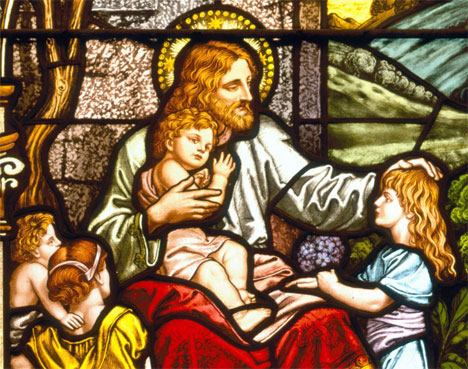 In the shadow of a tall bookshelf containing all 144,000 Douglas Wilson books, next to the covenantal family sing-a-long piano which held the covenantal tea set on a covenantal doily, I sat on a covenantal couch trying to explain our credo-baptist position to some dear Christian friends who wished to join our church without getting wet.
In the shadow of a tall bookshelf containing all 144,000 Douglas Wilson books, next to the covenantal family sing-a-long piano which held the covenantal tea set on a covenantal doily, I sat on a covenantal couch trying to explain our credo-baptist position to some dear Christian friends who wished to join our church without getting wet.
Continue reading
14 comments | tags: Baptism, Doug Wilson, Ecclesiology | posted in Biblical Theology, Quotes
Apr
2
2013
One of these things is not like the others,
One of these things just doesn’t belong,
Can you tell which thing is not like the others
By the time I finish my song?
Continue reading
Comments Off | tags: Baptism | posted in Christian Life
Apr
1
2013
 According to a recent post by Steve Jeffery, Paul quotes seven Old Testament texts in Galatians 3:6-16. He notes that they are chiastic, but I reckon they are also Covenant-shaped:
According to a recent post by Steve Jeffery, Paul quotes seven Old Testament texts in Galatians 3:6-16. He notes that they are chiastic, but I reckon they are also Covenant-shaped:
Continue reading
Comments Off | tags: Galatians, Literary Structure, Steve Jeffery | posted in Bible Matrix, Biblical Theology, Quotes
Mar
31
2013
Covenant Structure in Judges 14-15:8

“I will open my mouth in a parable;
I will utter dark sayings from of old… “
Psalm 78:2
The account of Samson’s marriage and the subsequent collateral damage is one of those stories out of which teachers and preachers try in vain to wring a moral. After all, isn’t that what the Old Testament is for? Actually, no. It is a history of God’s Covenants, and every single text, whether historical narrative or prophetic vision, has a Covenant structure. Certainly, there are morals, but some stories resist such an obvious use (unless we are willing to cook the Book). These stories of God’s delegated authorities are intended to illustrate the work of God in the world.
Continue reading
Comments Off | tags: Covenant Theology, Feasts, Judges, Literary Structure, Samson | posted in Bible Matrix, Biblical Theology
Mar
29
2013
Comments Off | tags: Crucifixion, Poetry, W. H. Auden | posted in Quotes
Mar
27
2013
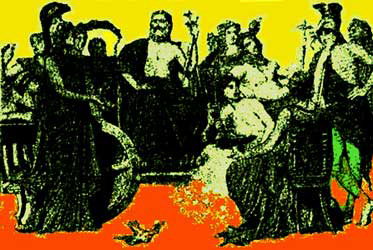
“For thus says the Lord of hosts: ‘Once more (it is a little while) I will shake heaven and earth, the sea and dry land…”
(Haggai 2:6)
Many modern commentators hamstring various parts of the Bible so they don’t run against the grain of modern scientism and historical revisionism. They do this by “classifying” the bits of Scripture that offend modern theory into neat literary genres. “If Genesis is poetry, it can’t be historical,” and other stupidities. Nice try. Another one is “apocalyptic,” a genre which, to the eye of unbelief, might appear to actually exist.
Continue reading
2 comments | tags: Covenant Theology, Genesis, Hermeneutics, James Jordan, Revelation | posted in Biblical Theology, The Last Days
Mar
26
2013
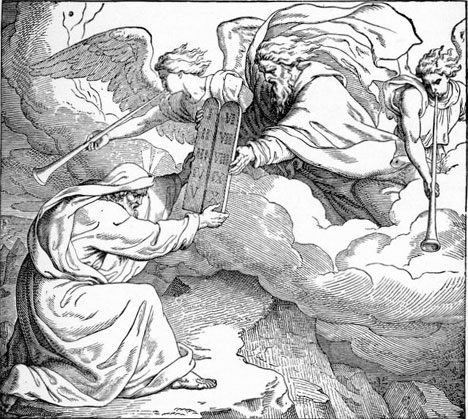
Part 1 | Part 2 | Part 3 | Part 4
It’s been a while since I blogged due to some pesky Russian hackers.
Well, it looks possible at this point that Ephesians actually has eight cycles, just as many of its “sevenfold” stanzas have eight lines. This is because step three reflects the Altar and the Table, the Land and the fruits of Day 3 (the first half of the cycle has a preliminary “filling”).
This means that the previous cycle, which spoke of the gifts to the Church, concerned the initial outpouring of the Spirit by Christ at His ascension. If that was the “three-and-a-half,” this next cycle must then be the Day 4, the governing lights, which seems to be the case as it begins with a reference to enlightenment, and proceeds to comment on what this looks like in the saints. If this is indeed the structure here, what follows below is the “Ethics opened” section of the epistle. The new Israel will not be given to harlotry in the wilderness, as the old one was.
Continue reading
Comments Off | tags: Compromise, Ephesians, Literary Structure | posted in Bible Matrix, Biblical Theology, The Last Days
Mar
20
2013
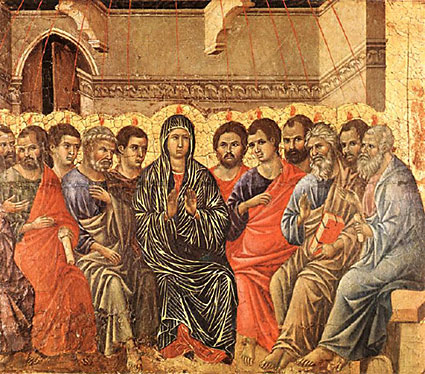 Part 1 | Part 2 | Part 3
Part 1 | Part 2 | Part 3
We have arrived the central cycle, the “Pentecost” of the epistle. Here’s how it looks so far:
Continue reading
Comments Off | tags: Baptism, Ephesians, Literary Structure, Paul | posted in Bible Matrix, Biblical Theology, The Last Days
 “…there is no sacrifice to Bathsheba…”
“…there is no sacrifice to Bathsheba…”




